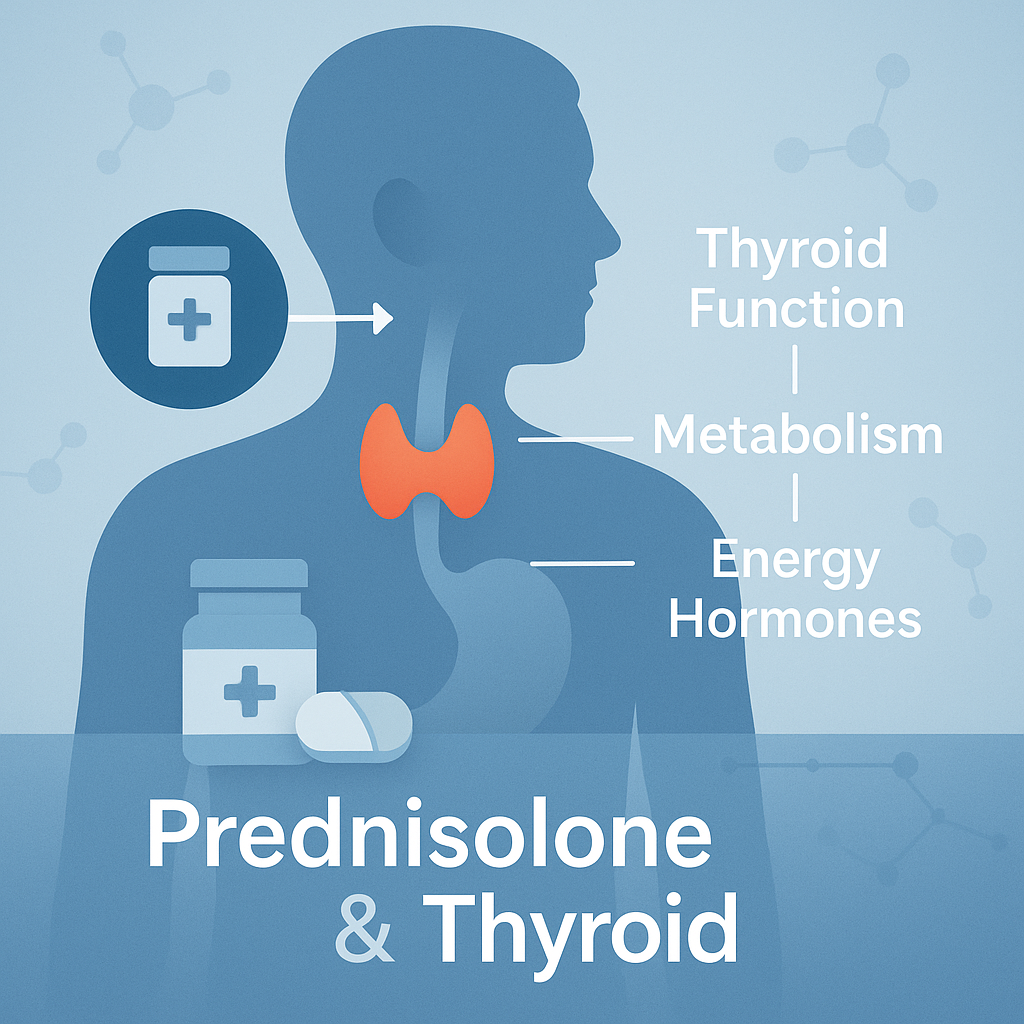Prednisolone is a widely used steroid that helps control inflammation and overactive immune responses. But if you have thyroid issues — or take thyroid medication — you might be wondering:
Does prednisolone affect the thyroid? Can it alter my thyroid hormone levels or symptoms?
Let’s explore how these systems interact, what you should look out for, and when to talk to your doctor.
🧠 Prednisolone and Hormonal Balance
Prednisolone is a glucocorticoid, which means it mimics cortisol — a hormone made by your adrenal glands. Cortisol interacts closely with other hormonal systems in the body, including the thyroid.
Prednisolone doesn’t replace thyroid hormones or directly treat thyroid disease, but it can influence thyroid function, especially in the following ways:
🔄 How Prednisolone Can Affect Thyroid Function
1. Suppresses TSH (Thyroid-Stimulating Hormone)
- Prednisolone can reduce TSH levels, especially in high doses.
- This doesn’t always mean your thyroid is failing — it’s a temporary suppression due to how steroids affect the pituitary gland.
- Lab tests might show slightly lower TSH, even if free T3 and T4 are normal.
2. Masks Symptoms of Thyroid Imbalance
- Prednisolone can reduce inflammation, which may temporarily hide signs of thyroid disease.
- For example, in autoimmune thyroiditis (like Hashimoto’s), inflammation and swelling may decrease on steroids — but the underlying problem remains.
3. Useful in Thyroid Eye Disease
- In Graves’ disease, some people develop thyroid eye disease (TED).
- Prednisolone is often used to reduce inflammation and swelling in the eyes during active flare-ups.
⚠️ What If You Have Hypothyroidism or Hyperthyroidism?
If you’re taking levothyroxine or another thyroid hormone:
- Prednisolone might slightly alter blood test results
- Your thyroid medication dose usually doesn’t need to change, but monitoring is important
- Tell your doctor if you’re on both, so they can interpret labs correctly
If you have Graves’ disease (hyperthyroidism):
- Steroids may help reduce eye inflammation
- In some cases, high-dose steroids are used short-term to manage severe flares
🧬 Autoimmune Connection
Both thyroid disease and conditions requiring prednisolone are often autoimmune in nature:
- Hashimoto’s thyroiditis
- Graves’ disease
- Lupus, rheumatoid arthritis, etc.
Steroids like prednisolone suppress the immune system, which can temporarily reduce autoimmune attacks — but they don’t cure the root cause.
🧾 Final Thought
So, does prednisolone affect your thyroid?
Not directly — but it can influence your test results, suppress inflammation, and help manage related symptoms, especially in autoimmune thyroid conditions.
If you have thyroid disease or are on thyroid medication, let your doctor know before starting steroids. And if your lab values shift while on prednisolone, don’t panic — it’s often temporary and manageable.





